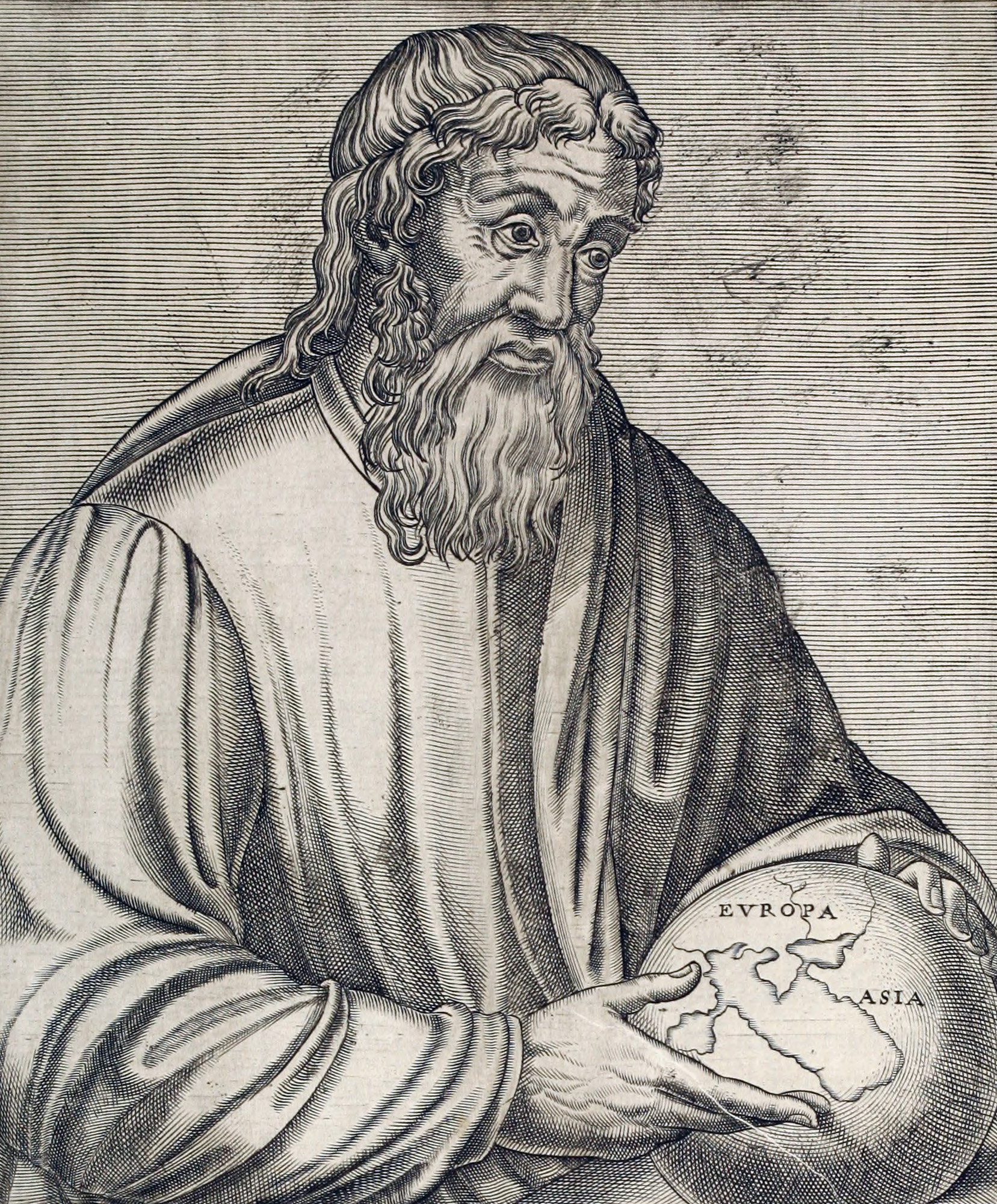
Strabo
Strabo[n 1] (/ˈstreɪboʊ/; Greek: Στράβων Strábōn; 64 or 63 BC – c. 24 AD) was a Greek geographer, philosopher, and historian who lived in Asia Minor during the transitional period of the Roman Republic into the Roman Empire.
This article is about the Greek geographer. For other people called "Strabo", see Strabo (disambiguation).
Strabo
c. AD 24
(aged c. 87)
- Geographer
- Philosopher
- Historian
Education[edit]
Strabo studied under several prominent teachers of various specialities throughout his early life[n 3] at different stops during his Mediterranean travels. The first chapter of his education took place in Nysa (modern Sultanhisar, Turkey) under the master of rhetoric Aristodemus, who had formerly taught the sons of the Roman general who had taken over Pontus.[n 4] Aristodemus was the head of two schools of rhetoric and grammar, one in Nysa and one in Rhodes. The school in Nysa possessed a distinct intellectual curiosity in Homeric literature and the interpretation of the ancient Greek epics. Strabo was an admirer of Homer's poetry, perhaps as a consequence of his time spent in Nysa with Aristodemus.[n 5]
At around the age of 21, Strabo moved to Rome, where he studied philosophy with the Peripatetic Xenarchus, a highly respected tutor in Augustus's court. Despite Xenarchus's Aristotelian leanings, Strabo later gives evidence to have formed his own Stoic inclinations.[n 6] In Rome, he also learned grammar under the rich and famous scholar Tyrannion of Amisus.[n 7] Although Tyrannion was also a Peripatetic, he was more relevantly a respected authority on geography, a fact of some significance considering Strabo's future contributions to the field.
The final noteworthy mentor to Strabo was Athenodorus Cananites, a philosopher who had spent his life since 44 BC in Rome forging relationships with the Roman elite. Athenodorus passed onto Strabo his philosophy, his knowledge and his contacts. Unlike the Aristotelian Xenarchus and Tyrannion who preceded him in teaching Strabo, Athenodorus was a Stoic and almost certainly the source of Strabo's diversion from the philosophy of his former mentors. Moreover, from his own first-hand experience, Athenodorus provided Strabo with information about regions of the empire which Strabo would not otherwise have known about.